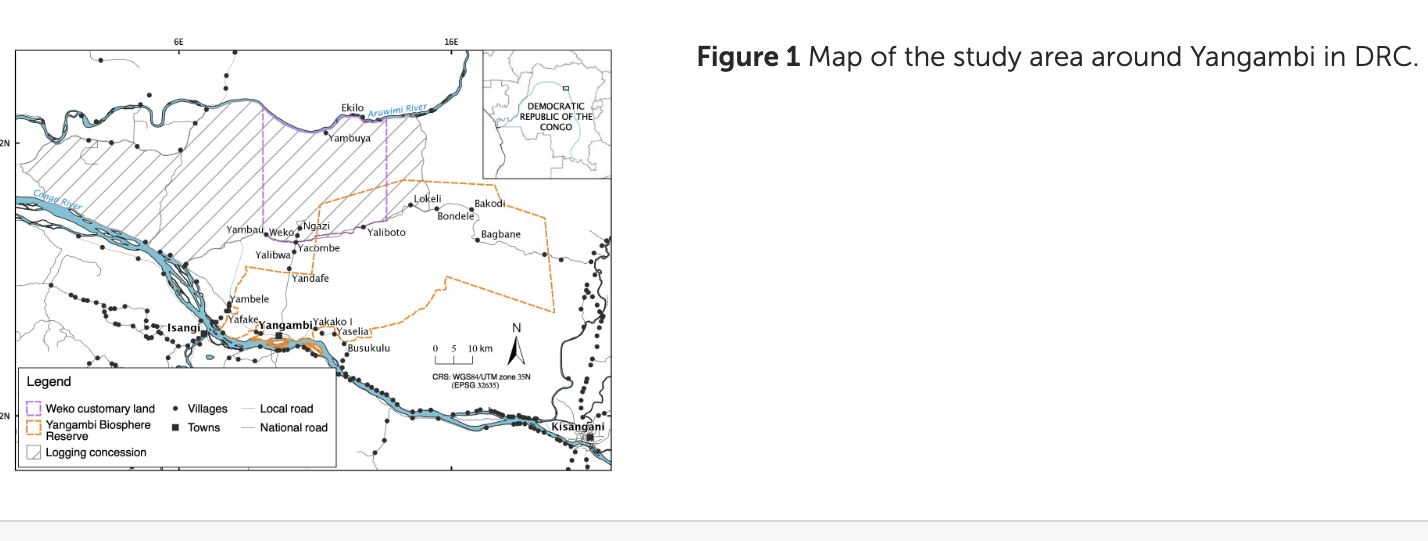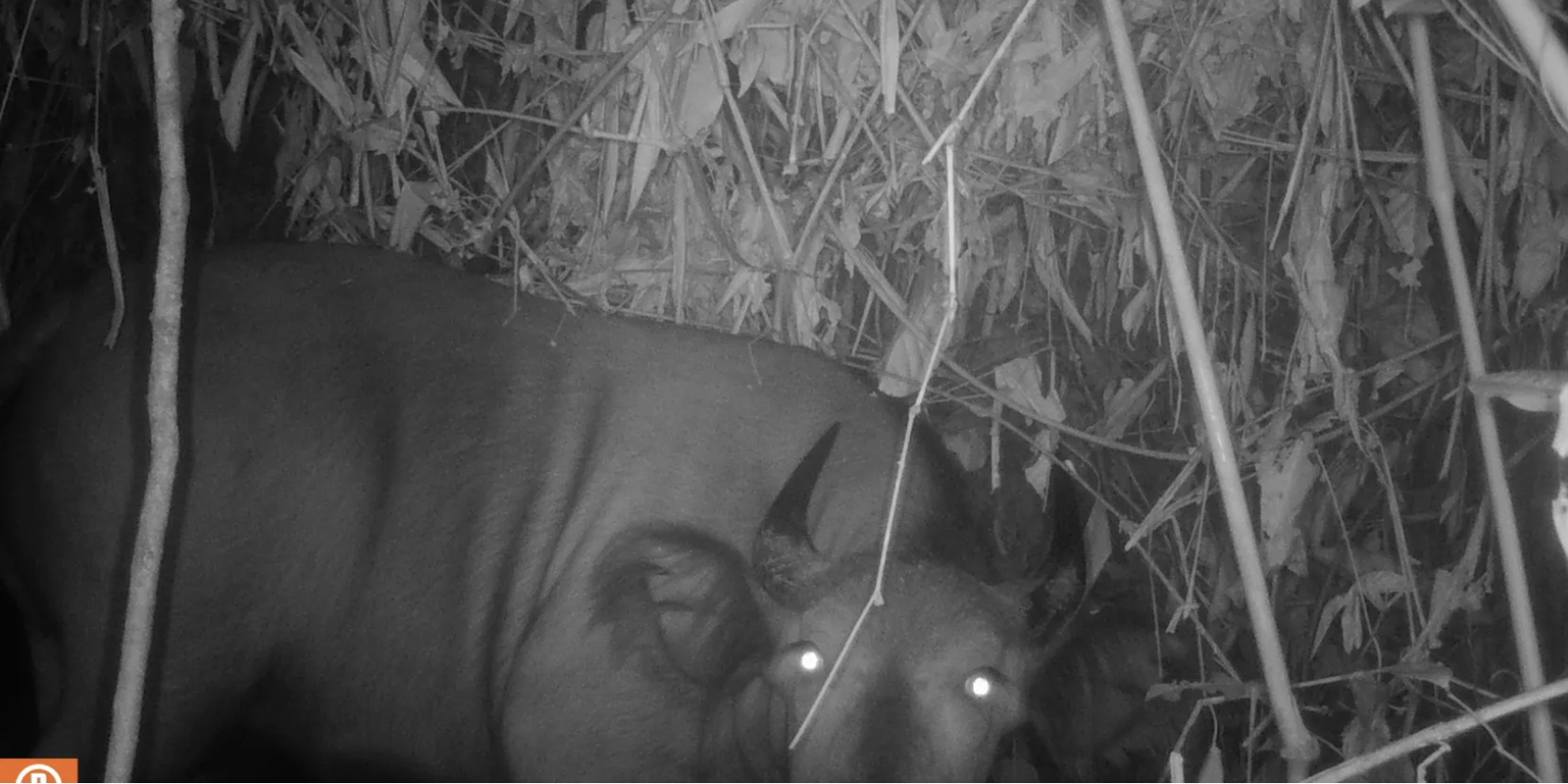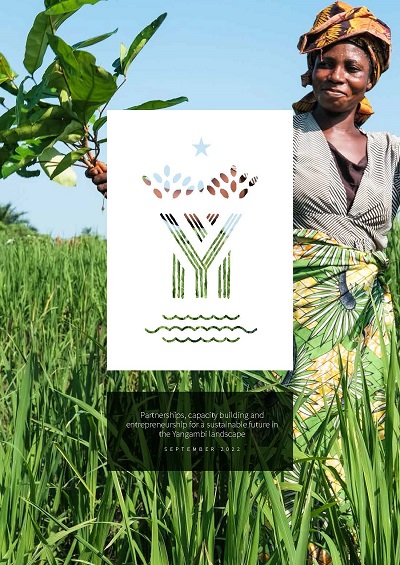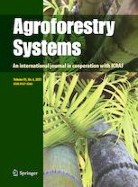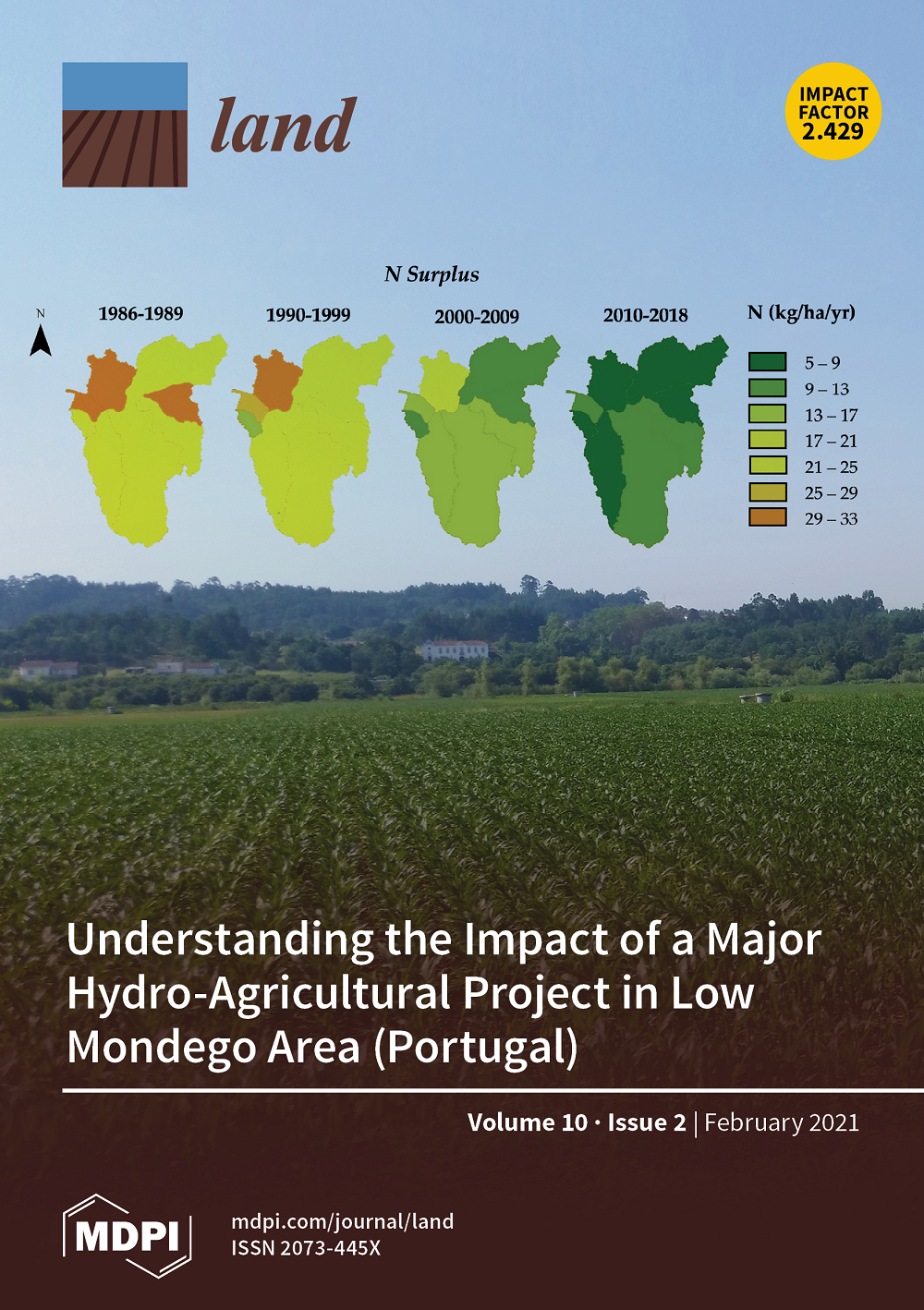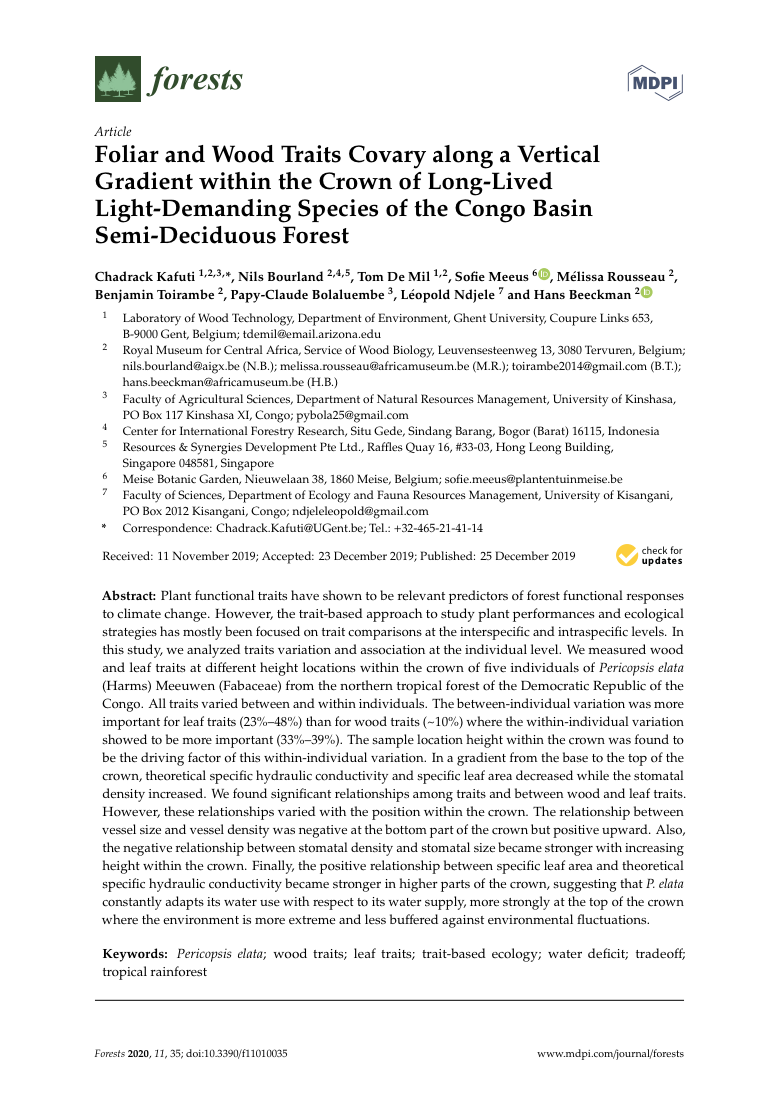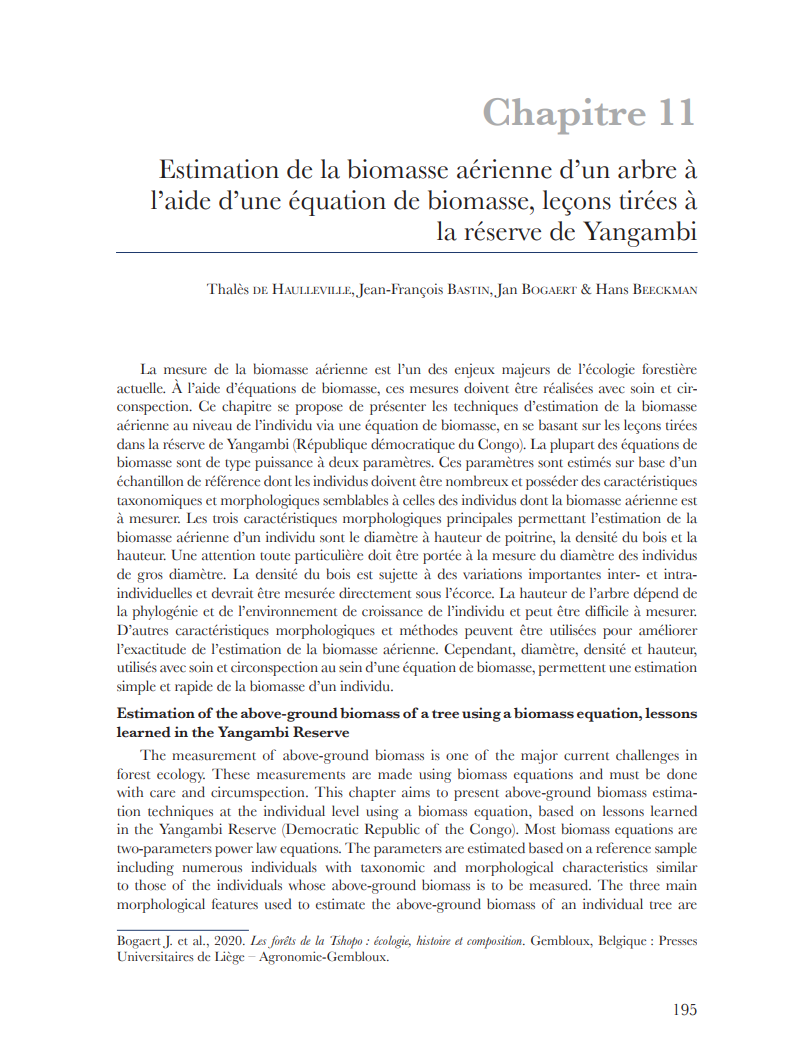
Description of the subject. Pericopsis elata (Fabaceae) is a long-lived light-demanding tree from African rain forests that produces timber of high economic value. Natural populations suffer from overexploitation and a deficit of natural regeneration. Plantations could increase its production and limit the pressure on natural forests. However, we lack knowledge on the influence of spacing and seed tree origin on tree growth to optimize plantation protocols. Objectives. This study evaluated the impact of sapling density and seed tree origin on the growth in diameter and height of P. elata plants, 20 months after plantation. Method. Seeds were collected on 19 mother trees in a 400 ha natural stand near Kisangani (DRC). In October 2017, seedlings were transplanted in a Nelder design plantation with three replicates, to compare sapling growth at 10 contrasting plant densities under full sun. Diameter and height increments of 540 plants were analyzed according to local competition and maternal origin using generalized additive models. Results. Twenty months after planting, height growth peaked at an intermediate density of 47,000 stems·ha-1 (165.6 ± 39.2 cm·year-1), while diameter growth peaked at a lower density of 4,200 stems·ha-1 (24.6 ± 8.3 mm·year-1). The maternal origin of saplings affected their growth, the coefficients of variation among mother trees reaching 7.6% and 6.4% for diameter and height increments, respectively. The initial diameter affected positively diameter growth while the initial height did not influence height growth. Conclusions. The Nelder design proved useful to assess how plant growth depends both on spacing and genetic factors.

